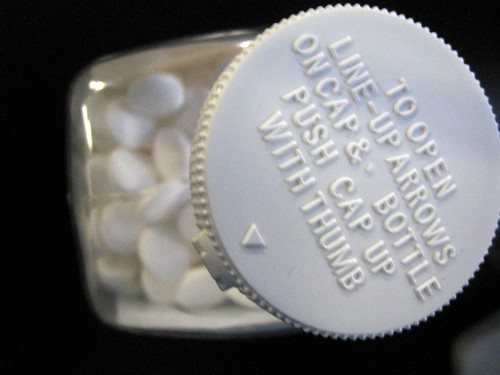Is aspirin a suitable anti-inflammatory for dogs?
In the past pet owners have turned to aspirin when needing an anti-inflammatory for dogs. However, aspirin and other drugs intended for human use can have unintended side effects on dogs. And now that a range of anti-inflammatory drugs specifically tested on dogs are widely available, it makes little sense to take the risk of using aspirin outside of short-term emergency situations.
The risk of giving a dog aspirin as an anti-inflammatory stems from inconsistencies in the speed of metabolism in different animals. What is suitable for one dog, won’t necessarily work for another. There are online reports of two aspirin tablets causing organ severe organ damage in medium sized, 30 pound, dogs. In this case it is likely an unusual rate of metabolism led to the rapid accumulation of harmful breakdown products which damaged the organs. Think careful before choosing aspirin for dogs.

CC image courtesy of brx0 on Flickr
Pet owners can take steps to limit the risk of side effects. Buffered or enteric-coated aspirin is safer because the casing cuts the risk of damage to the stomach. As with other non-steroidal anti-inflammatory drugs, aspirin can cause damage to the stomach, particularly if used in high doses over a prolonged period of time.
These risks are still present with NSAIDs designed for dogs – such as Rimadyl – but extensive testing on animals mean they should offer a better safety profile. A trip to the vet with a dog suffering from arthritis or another form of joint pain is likely to result in a prescription for one of the pet-specific NSAIDs now available. Aspirin is no longer the best anti-inflammatory for dogs. Neither are other NSAIDs such as ibuprofen that people might consider as pain relief for dogs.
Over the longer-term, many pet owners try to ween their animals off even these NSAIDs. Supplements such as glucosamine and chondroitin for dogs often play a role in this gradual reduction in NSAID consumption. The risk-benefit balance will differ for each dog so it is best to talk with a vet who knows the animal and its ailments before making any decisions.
No comments:
Post a Comment